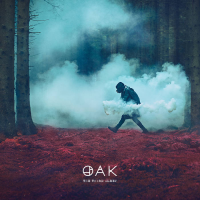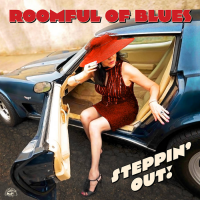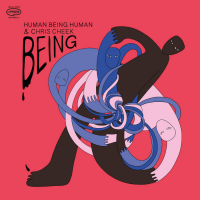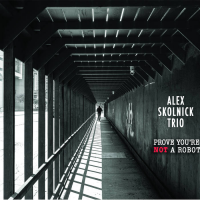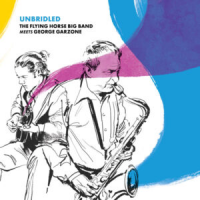Home » Jazz Articles » Bailey's Bundles » B.B. King: Live in Cook County Jail and More…
B.B. King: Live in Cook County Jail and More…
In his hommage to Cash after the singer's death in 2003, VH1 Executive Director Bill Flanagan properly framed the importance of these artists in that era on the CBS program Sunday Morning:
"It's becoming more apparent with every year that goes by that the period from the mid-'50s to the mid-'70s was a golden age for popular music. To have lived in the era where Cash and Presley and the Beatles and Stones and Aretha and Dylan and Miles Davis [and B.B. King] (my insert and emphasis) were around is like to have lived in Paris during the time of the impressionists.
That era is moving away... We can assume that these musicians who loom large in our culture will always be around. They won't. We should appreciate them while we have them because someday we'll turn around and they'll be gone."
And such is where we find ourselves today. Riley B. King (September 16, 1925-May 14, 2015) sprang from humble Mississippi beginnings to become the single most recognized voice of the blues and R&B...ever. He recorded his first record in 1956 (Singin' the Blues (Crown)) and his last in 2008 (One Kind Favor (Geffen)). That is almost an even 50 years of recording: contributing to and changing the face of American Music. Now King's considerable body of work becomes a dynamic memory never stopping to inform, to educate, to lift up.
In his lengthy career, King recorded many live albums, two of which -Live at the Regal and Live in Cook County Jail)—are considered classics. For the sake of argument and ultimately inclusion in my ongoing series "The Best Live Recordings: Rock and Beyond..." I will declare Live in Cook County jail the best of the bunch, if for no other reason, that I wore out two vinyl copies in high school and college. While that is the feature of this article, I will also address Live at the Regal, the incendiary performance included on the Rolling Stones' Get Yer Ya-Ya's Out! The Rolling Stones in Concert (40th Anniversary Deluxe Box Set, Abkco, 2009), and the recently digitally-released Live / Fillmore East -New York, NY June 19, 1971 (Geffen, 2009). Yes, these should do nicely.
 B.B. King
B.B. King Live in Cook County Jail
MCA
1971
Like the previously mentioned Johnny Cash, King created a career-defining and enduring live recording before a prison audience. Few things are more iconic than Cash's self-introduction on Johnny Cash at Folsom Prison but one of them is definitely King capping his lengthy soliloquy on "Worry, Worry" with the beautifully dismissive, ..."someday, baby!." Recorded September 10, 1970, Live in Cook County Jail was a warm get-together with friends compared to Cash's angry and causative masterpiece. King's rapport with his Chicago audience was immediate and firmly established.
Kings overall recording output is impressive in both its size and the quality of the performances and recordings. But every so often in his long career, the stars would align for King and his band and the music he produced proved well above that of his peers. This was just such an occasion, where King mowed everything down in his path from "Every Day I have the Blues" to the blues ballad, "Please Accept my Love." King also played much more guitar during this period, always relying on his trademark blues licks (reproduced my a million guitarists after) and his tonic bell ringing.
Live in Cook County Jail is comfortable extension of not the sound of the Chicago blues, but rather that forged by T-Bone Walker, whose sparse and exact blues style was a model for King as well as his use of a horn section. To his Cook County Jail audience, King plays more gritty "urban" than sophisticated "urbane," always knowing who he is playing to. That is the touch of a great artist. But that is as close as one can come to pinning down B.B. King to a genre or subgenre. BB King, like his contemporary Willie Dixon, could justifiably boast that, "I Am the Blues."
 B.B. King
B.B. King Live at the Regal
MCA
1965
Recorded at Chicago's Regal Theater on November 21, 1964, Live at the Regal predates Cook County Jail by almost six years. King's stage presence and guitar playing were already fully formed by this time and arguably smoothed of all rough edges. The differences between King and his contemporaries Muddy Waters and Howlin' Wolf was his sophisticated urbanity briefly mentioned above. King toned down the frank carnality of his contemporaries to make a more readily acceptable flavor of music for a cross-over audience. But that audience was still relying on the British Invasion to teach it about its indigenous music and King's universal recognition and popularity remained years away thanks to the pernicious effect of Jim Crow America.
Doubltless, Live at the Regal is King's finest live recorded moments released in situ. The disc reveals a consummate artist performing in his element. His singing and guitar playing are virile and essential inhabitants of the American unconscious, something, like Grace, which has been there all along. King has an easy way about him in this show. It is deceptively matter-of-fact, an artifact of already 15 years performing under all conditions. Conditions like that under which his Gibson ES-355 was named "Lucille:"
"I used to play a place in Twist, Arkansas. It's still there, Twist, Arkansas. They used to have a little night club there that we played quite often. It used to get quite cold in Twist, and they used to take something, looked like a big garbage pail and set it in the middle of the floor, half fill it with kerosene, and light that fuel and that's what we used for heat. And generally, the people would dance around it and they wouldn't disturb this container.
But this particular night, two guys started to fighting, and one of them knocked the other one over on this container. When they did, it spilled on the floor. Now it was already burning, so when it spilled it looked like a river of fire. And everybody ran for the front door, including yours truly. But when I got on the outside, then I realized that I'd left my guitar inside. I went back for it. The building was a wooden building and it was burning so fast when I got my guitar, it started to collapse aound me. So I almost lost my life trying to save the guitar. Well, the next morning we found that these two guys arnewas fighting about a lady. I never did meet the lady but I learned her name was Lucille. So I named my guitar Lucille to remind me not to do a thing like that again..."
Sharah Shetty, Blank on Blank, PBS (1986).
Twist, Arkansas...how perfect is that? Twist, Arkansas is an unincorporated greasy spot on AR-42 just south of Marked Tree in Cross County. In this respect, Twist is not unlike that unincorporated township, Turkey Scratch, located south in Philips County that gave birth to musicians Robert Jr. Lockwood and Levon Helm. But, for damn sure, both places were light years away from Chicago's Regal Theatre. On that late fall night in 1964, BB King was home and in charge of the venue. "Sweet Little Angel" and "It's My Own Fault" never sounded better than this night.
 B.B. King
B.B. King Live / Fillmore East—New York, NY June 19, 1971
Geffen (Digital Only)
1971/2009
From the archives of Bill Graham's Fillmore East comes more live B.B. King from the late 1960s, early '70s. King was in superb form for this concert, playing perhaps the best guitar of this career. Lucille is situated well in front in the mix and is as commanding a presence in the performance as is King's mighty voice, as is amply evidenced in the lengthy introduction to "How Blue Can You Get." Recorded a year after Cook County Jail this performance finds King facing the 1970s full on, letting his ground-breaking guitar pave the way. His horn section is full of jump blues and hard bop and his singing as relevant as ever.
Unlike live recordings confined to the approximately 50 minutes of a vinyl LP, this show was able to include King's incendiary instrumental interludes, all here un-named as they were simple head charts. King gets to the meat of the matter with a brief "Every Day I have the Blues" that segues into a lengthy (for King) "How Blue Can You Get." Supporting the recently released Indianola Mississippi Seeds (ABC, 1970), an all-star affair pitting King with Leon Russell, Carol King, and Joe Walsh. King covers Russell's "Hummingbird," reprising it in this show. King is out of his comfort zone here, but that has not ever stopped him before. While the piece is solid, King's affinity for the sacred 12-bars is evident. What makes this performance special is King's coda solo, which summons a lifetime of lyricism into a rocking two minutes. I hope there are many more releases like this one.
 B.B. King
B.B. King From Get Yer Ya-Ya's Out! The Rolling Stones In Concert 40th Anniversary Deluxe Box Set
Abkco Records
1969/2009
What a beautiful surprise to have a set from BB King included on the 40th Anniversary release of the Rolling Stones, Get Yer Ya-Ya's Out! The Rolling Stones In Concert. One the same bill with The Rolling Stones and Ike and Tina Turner that November, 27 & 28, 1969, King turned up Lucille and played like the Giant he was. King showed where everything came from. He was not an opening act for the Rolling Stones so much as an American musical Moses parting the waters of popular music showing all the way.
From the beginning, King was all white phosphorous, throwing off sparks, igniting fires, and desiccating the crowd and making goddamn sure Ike Turner knew who was the boss. "How Blue Can You Get" gets a definitive reading. This is the guitar playing critics have written about for 60 years. It is the tone that launched a million urban white guitarists. There would have been no Eric Clapton, no Alvin Lee, no Walter Trout had there not first been B.B. King and this is the proof.
King's musical output has now become static in the sense that there will be no more new; it remains kinetic in its appeal and influence.
Tags
PREVIOUS / NEXT
Support All About Jazz
 All About Jazz has been a pillar of jazz since 1995, championing it as an art form and, more importantly, supporting the musicians who make it. Our enduring commitment has made "AAJ" one of the most culturally important websites of its kind, read by hundreds of thousands of fans, musicians and industry figures every month.
All About Jazz has been a pillar of jazz since 1995, championing it as an art form and, more importantly, supporting the musicians who make it. Our enduring commitment has made "AAJ" one of the most culturally important websites of its kind, read by hundreds of thousands of fans, musicians and industry figures every month.










